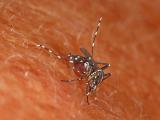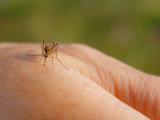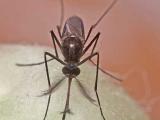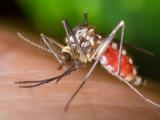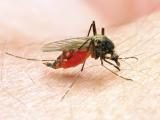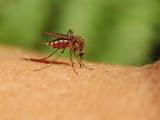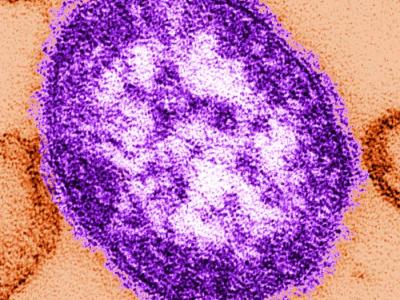Apr 25, 2005 (CIDRAP News) Researchers have developed an antibody that can cure mice of West Nile virus (WNV) infection, a disease for which no specific treatment now exists, the National Institute of Allergy and Infectious Diseases announced yesterday.
A team at Washington University in St. Louis "developed an infection-fighting antibody that mimics one produced by people whose immune systems successfully fend off the West Nile virus," the NIAID said in a news release. "The researchers tested their antibody in mice and say its success warrants further development and testing in people with West Nile disease."
The research, funded in part by the NIAID, is described in a report published online yesterday by Nature Medicine.
WNV causes no symptoms or only a mild flu-like illness in most people. But in about 1 in 150 people infected, the virus invades the central nervous system and can be fatal. The United States had 2,470 reported cases of West Nile disease in 2004, with 88 deaths, according to the Centers for Disease Control and Prevention.
The researchers decided to develop their treatment, a monoclonal antibody, after they found that antibodies taken from the blood of people who had recovered from West Nile fever could cure mice infected with WNV, the NIAID said. But antibodies derived from human blood vary in their ability to fight disease, and they can be accompanied by other potentially dangerous infectious agents, despite efforts to purify them.
To solve these problems, the research team "made 46 monoclonal antibodies against West Nile virus and then eliminated the less effective ones through a tedious molecular-level screening process," the NIAID said. Then they worked with MacroGenics, Inc., Rockville, Md., to create a human-like version of the most effective antibody.
"MacroGenics stitched the part of the antibody that cripples the West Nile virus into the scaffold of a human antibody," the statement said. "The monoclonal antibody was several hundred times more potent in cell culture tests than antibodies obtained from people who had recovered from West Nile virus infection."
"We could give this antibody to mice as long as five days after infection, when West Nile virus had entered the brain, and it could still cure them, senior investigator Michael Diamond, MD, PhD, said in the news release. It also completely protected the mice against death.
Oliphant T, Engle M, Nybakken GE, et al. Development of a humanized monoclonal antibody with therapeutic potential against West Nile virus. Nat Med 2005 Apr 24 (early online publication) [Full text]
See also:
NIAID news release
http://www.niaid.nih.gov/news/newsreleases/2005/Pages/westniletherapy.aspx
